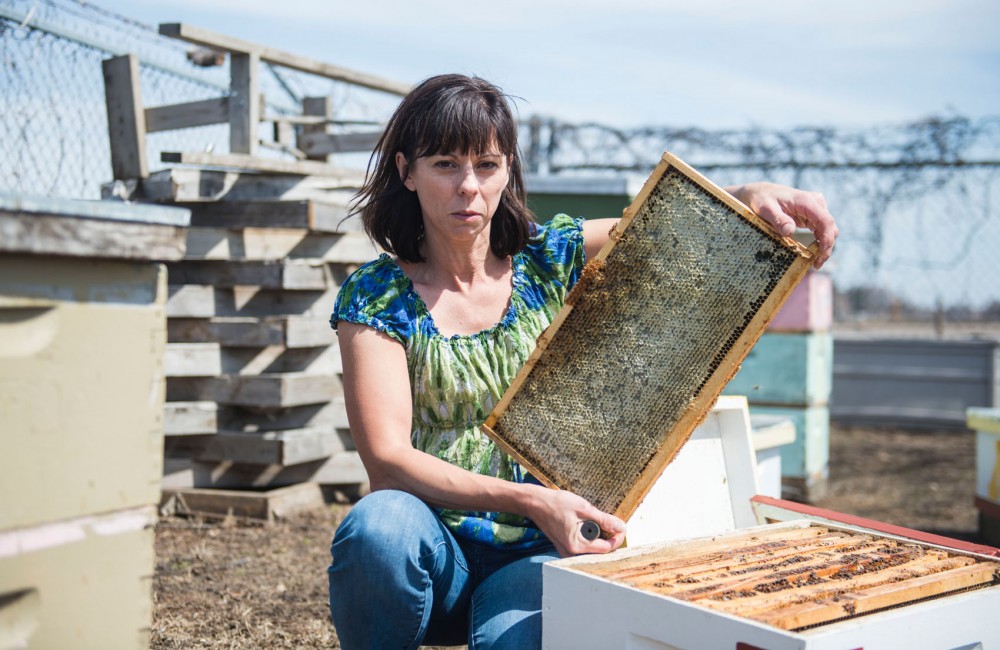Working out of a rundown building in the corner of the University of Minnesota’s St. Paul campus, graduate researchers are attempting to solve issues far bigger than the facility housing their research.
The Bee Lab researches bee populations, whose recent diminishment could pose a major threat to the world’s food systems.
The work is part of the University’s big-picture idea of securing resources beyond campus through outreach and research. Now, school officials want college departments to boost their efforts in these fields, and many agree the time is right.
“Food security is of the utmost importance to the world’s population, both now and in the future,” said Board of Regents Chair Richard Beeson. “The U is at the forefront of this work and brings a broad set of expertise to solve this pressing problem.”
In University President Eric Kaler’s State of the University address last month, he encouraged school leaders to combat society’s “grand challenges,” including food security. At last month’s regents meeting, the board discussed ways to allocate University resources in a globally responsible way. Regents also noted the importance of community outreach by departments.
College of Food, Agricultural and Natural Resource Sciences interim dean Brian Buhr said the issue is important to discuss now as natural resources deplete, climate change affects crop yields and ecosystems suffer worldwide.
The college already focuses on increasing crop productivity to combat this problem, Buhr said.
“We’re constantly evaluating how to conserve natural resources and generate the best versions of crops to resist diseases,” he said.
Buhr said food security is “central to everything we do as a college.”
Members of the Bee Squad, a division in the Bee Lab that focuses on education, connect with community members who keep bees to make sure they’re fostering hives properly, in an effort to improve the local bee population.
Bee Squad coordinator Becky Masterman said bees are a crucial factor in the balance of the ecosystem. They pollinate an estimated one-third of the U.S. food supply, according to a report by the U.S. Department of Agriculture.
Bee populations shrank significantly in recent years, she said, which is an alarming problem.
In its 2014 capital request, the University is asking for state bonding dollars to upgrade the Bee Lab.
Even if the request is granted and the upgrades are made, Buhr said, it will take collaboration at the departmental and University-wide levels to tackle a challenge like food security.
The University’s Stakman-Borlaug Cereal Rust Center is dedicated to educating and training new students trying to alleviate cereal rusts — fungi that destroy cereal plants. The center works to combat crop disease by continuing research and educating farmers statewide, said plant pathology professor Brian Steffenson.
The center, along with the Bee Lab, attempts to solve these types of problems by engaging people beyond the five-campus system, Buhr said, and the implications reach people around the world.
“[The University is] positioned in one of the most resource-rich and diverse landscapes on the planet,” Buhr said in a presentation at last month’s regents meeting.


